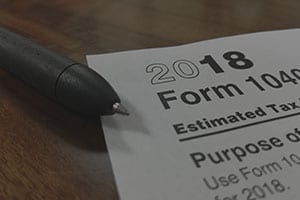With the 2019 tax season still months away, many people forget about taxes till the tax filing season bells begin to chime. However, you only reap the benefits of a tax strategy if it is carried out for the whole year. Keeping taxes in mind when investing, spending, and withholding is a great way to…
As an attempt to close the Tax Gap, the IRS can audit a business by worker classification (employee vs. independent contractor), fringe benefits (non-monetary pay for employees), executive compensation (both monetary and non-monetary pay for executives), and reimbursed expenses (i.e.; travel expenses). The best way to avoid this is to pay close attention to the IRS…
Filing taxes can be a complex matter. The tax laws change often and understanding the minutiae takes years of experience to be able to decipher the verbiage the IRS uses. Not only that but if you have attempted to file your tax return to discover a large debt, you may not have used or have…
Typically, acquiring a tax debt comes with additional interest and penalties. However, the IRS will waive some or all of the specific penalties under certain conditions. Some of the penalties eligible for being waived are, but are not limited to: Failure to File Failure to Pay Failing to Deposit One of the benefits of applying…
An IRS levy is different than a lien. A lien is a legal claim placed on your property and on your credit report. A levy is when the IRS actually seizes your property or your funds directly from your bank account, savings account, or other financial accounts where your money is held. The IRS can also…
Excise Tax is a tax paid when a purchase is made on a specific good, service, or activity. Typically, the IRS applies an excise tax to anything that may be harmful to a person or the environment. This can include tobacco, alcohol, health products or services, highway and fuel usage, and aviation usage and services….
If you have a business tax debt, the IRS can place a levy on your bank accounts that include your vital accounts used for payroll. When this occurs, the IRS has the right to remove all funds in these accounts to collect on the outstanding tax debt, making it problematic to pay crucial expenses and near-impossible to retain your employees that…
If you are stuck in situation in which you are being held financially responsible for your spouse’s tax debt, you have options to gain relief. The IRS has a program designed to evaluate your situation and determine if you can be released from this financial obligation that your spouse caused. Unfortunately, pleading your case to the…
A payroll tax debt occurs when a business owner fails to withhold the appropriate amount of taxes from their employee’s paychecks and send the funds to the IRS. Sometimes this happens due to negligence of the company’s accountant, a mistake in understanding the tax codes, a misunderstanding of if an employee is a W-4 or…
As an employer, you’re responsible for paying payroll taxes on your employees. Typically, these taxes are due quarterly, which can make it easy to miss a payment. Some origins for payroll tax debt can be if an employer borrows from a payroll account to cover other expenses, or they may forget to withhold or deposit…











